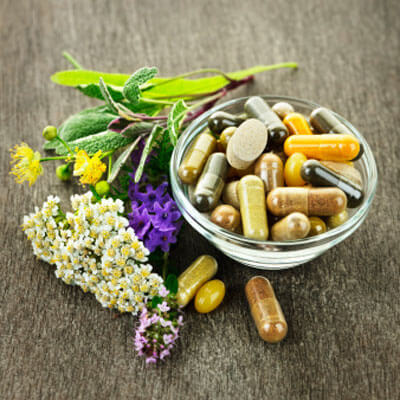 Quality produce is vital to good health. There is, however, so much that happens before it gets to our table. Different factors influence the availability and quality of the produce that we buy in our stores, one of which being pollinators such as bees and butterflies. Closely related to these to pollinators is our use of pesticides on the majority of our produce. Not only are pesticides hazardous to our health, but they also harm the pollinators that are essential to the growth of more produce. A movement to save the bees has been a hot topic over the past decade and as of 2022, monarch butterflies (North America’s most populous butterfly) have been put on the endangered species list.
Quality produce is vital to good health. There is, however, so much that happens before it gets to our table. Different factors influence the availability and quality of the produce that we buy in our stores, one of which being pollinators such as bees and butterflies. Closely related to these to pollinators is our use of pesticides on the majority of our produce. Not only are pesticides hazardous to our health, but they also harm the pollinators that are essential to the growth of more produce. A movement to save the bees has been a hot topic over the past decade and as of 2022, monarch butterflies (North America’s most populous butterfly) have been put on the endangered species list.
Thankfully, there are multiple things we can do to help.
1. Plant diverse flowers.
Bees and butterflies thrive off of botanical diversity. Bees love clover, sunflowers, zinnias, marigolds, peonies, rosemary, borage, pansies, coneflowers, and foxgloves. Butterflies enjoy similar plants, but butterfly bushes are also a popular attractor for monarchs. If you are buying plants from the store, it is also important to buy ones that are labeled as neonicitinoid free, as pollinators could consume the pesticides that have seeped into the plants and be killed.
2. Plant Milkweed.
All monarch butterflies first start off as monarch caterpillars. Monarch butterflies lay caterpillar eggs on milkweed plants and the monarch caterpillars eat the milkweed as their main food source. Milkweed seeds can be found online for free, but it is also important to choose species that are local to your area. The good news about milkweed is that, once it takes to the ground, it will flourish and spread more every year with no effort on your part!
3. Go chemical free.
While ditching the harsh outdoor chemicals are a good idea for a variety of personal health reasons, this will also help the pollinators. Glyphosate- based herbicides (GBH) weed killers like Round Up are toxic to pollinators and are a main reason for their decline. You can also support the cause by buying organic produce. Vinegar based products can be used for weeds and are also safe for bees.
4. Foster Monarch Butterflies.
While all wildlife is susceptible to different assaults and things that can be deemed “the course of nature”, we can also intervene and bring monarch caterpillars into our home or a covered outdoor enclosure. This will help protect them (especially babies) from parasitical infections and being consumed by spiders. By planting milkweed and diverse, native plants, you can also register your yard as a monarch sanctuary.
5. Spread the Word!
One of the best things you can do is to spread the word about the importance of pollinators. By getting others on board, we can all do our part to help rebuild the pollinator population. Raising caterpillars/butterflies is a beautiful hobby that is also a hit with kids!
If you would like to learn more about safely raising monarch butterflies, our nutritionist, Sarah, would love to talk to you and tell you more. She has been raising monarch butterflies since she was a child and her yard is a registered monarch waystation. Also, if you stop into our Middletown office this summer, you might get to see some caterpillars on display! Have questions about organic vs nonorganic produce or looking for tips on how to add more fruits and vegetables to your diet? Call to schedule with Sarah today at 302-828-0048.
Additional resources:
https://monarchwatch.org/
https://monarchjointventure.org/
https://thebeeconservancy.org/
https://savethebees.com/
https://carolinahoneybees.com/weed-killer-safe-for-bees/
Sarah’s butterfly Instagram: @themonarchmarauders
